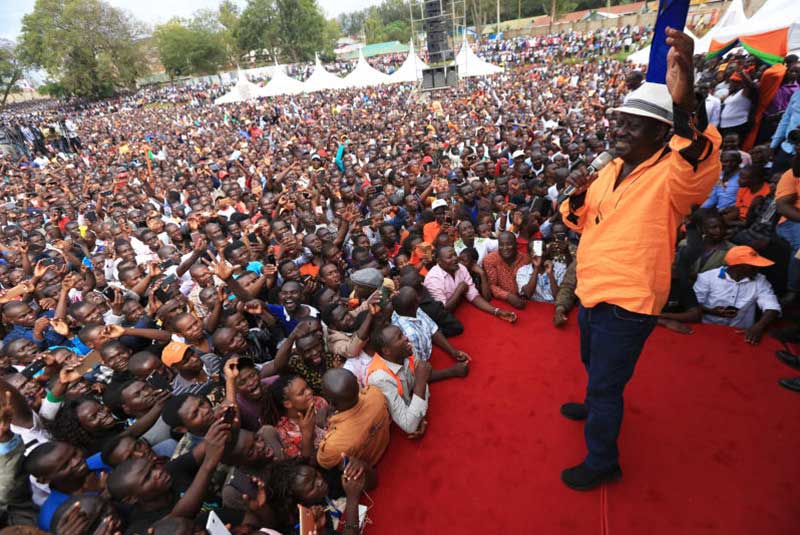
Raila’s statement about his swearing in as president has understandably divided the nation — if one might describe Kenya as a “nation”. He seems to be losing the sympathy even of some of his close supporters for his persistence to be so sworn-in. And his colleagues seem ready to leave him, as they realise that he is unable to bestow money or office on them.
As usual, the diplomatic community is worried about violence — and not concerned about the illegality and the unfairness of the conduct that has led Kenyans into this crisis. Those who accuse Raila of treason should review the legality of their own acts that has led us into this crisis. The Attorney-General is pontificating to him when people feel the AG could have done more to ensure free and fair elections. I have every sympathy with Raila’s sense of betrayal, the victim of the disregard of the norms of fair electoral process by those in authority, and the general principles that underlie our Constitution.